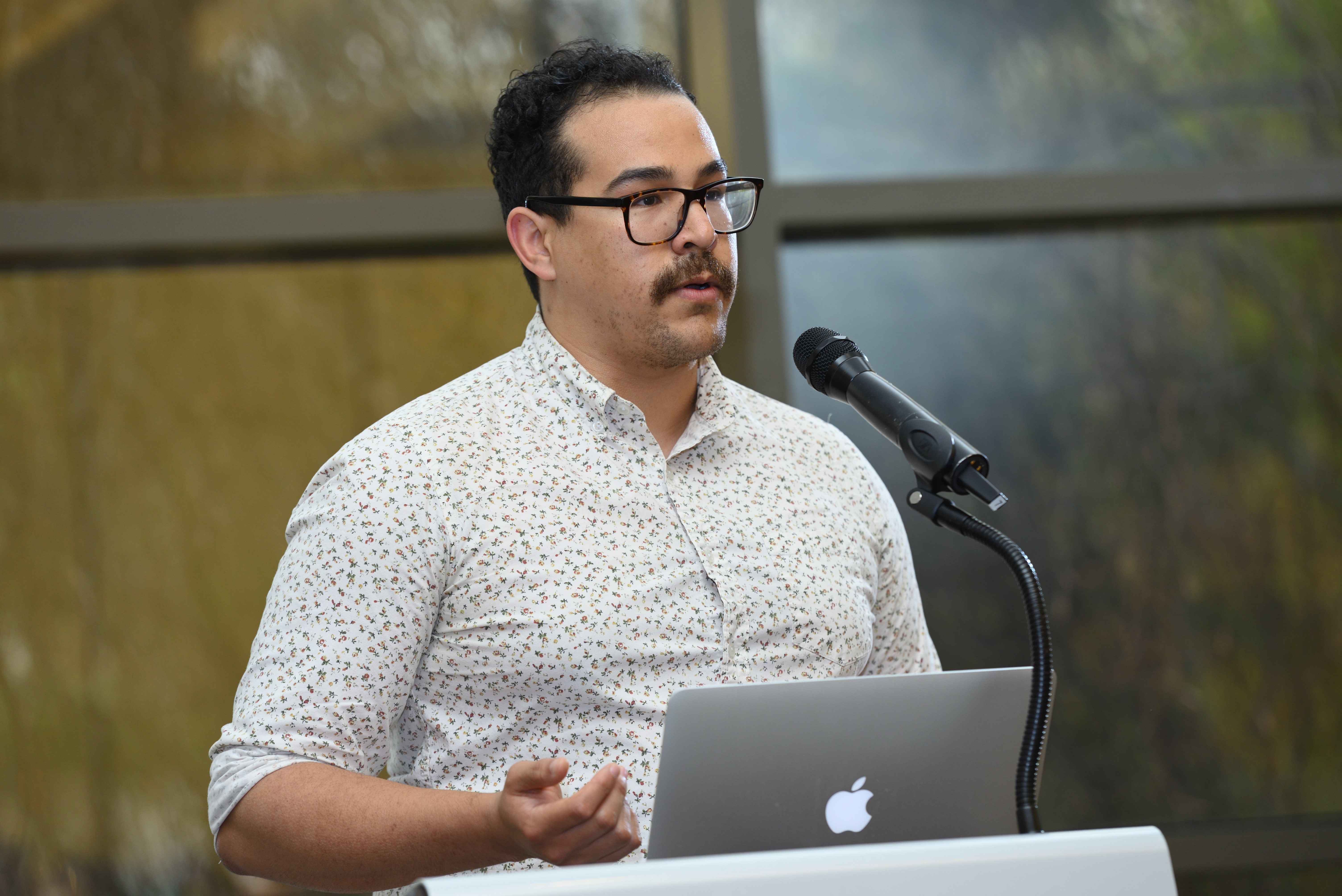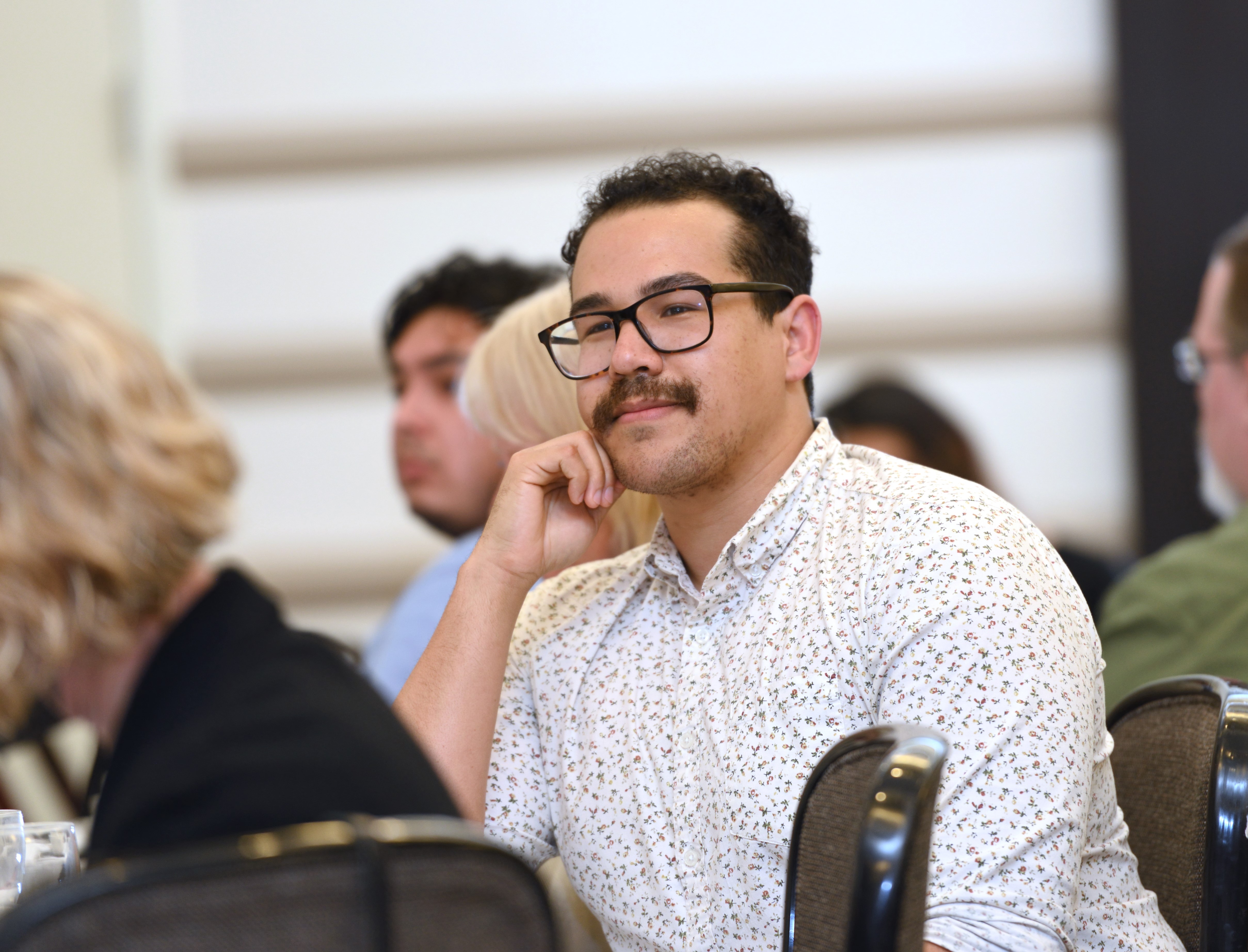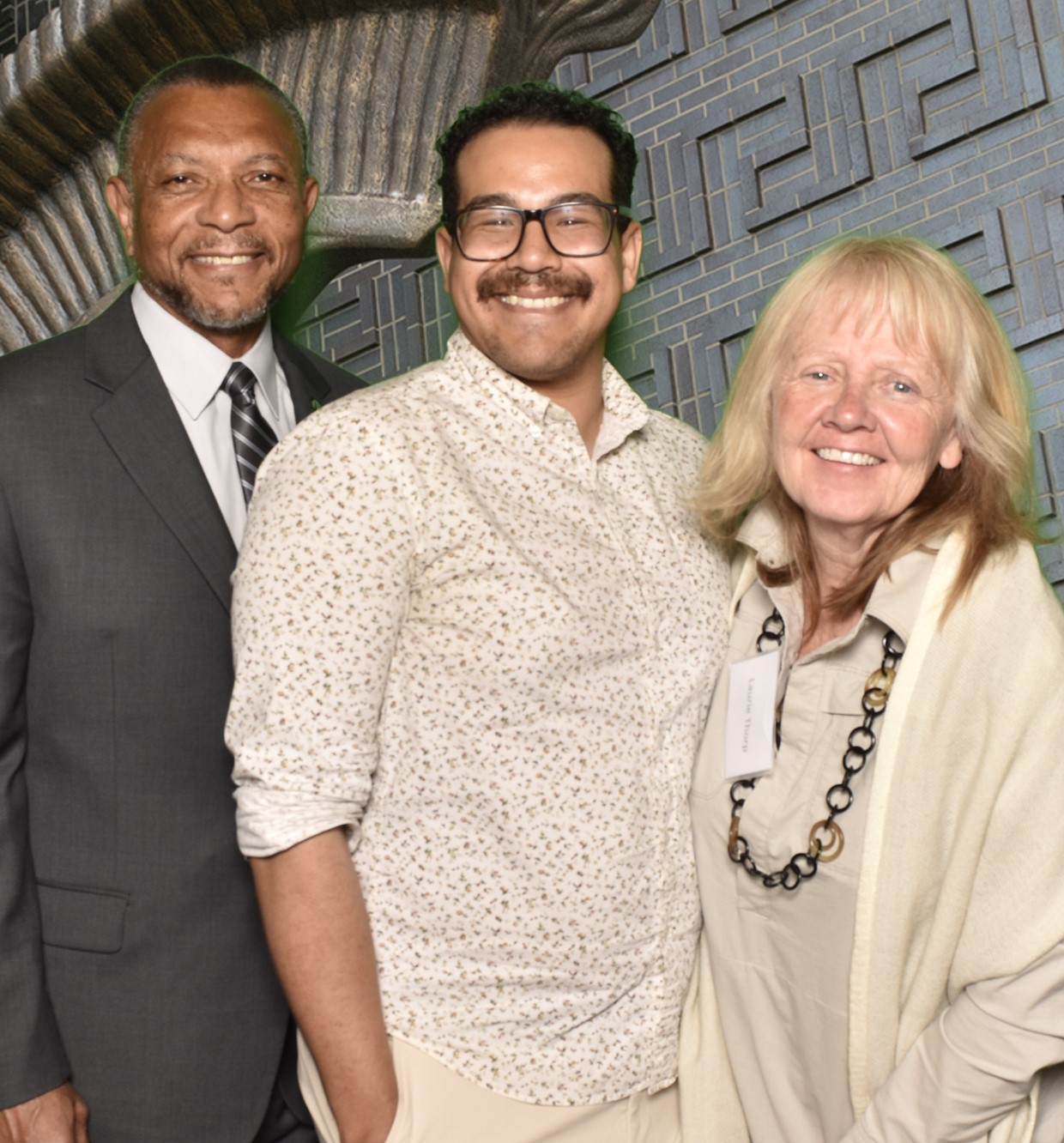Stephen V. Carney 2023 Drew Scholars Alumni Speaker

About
Stephen Carney came to MSU from Canton, MI. He has mix ancestry, being a descendant of both African Americans and Native Americans. His grandmother’s tribe resides on Walpole Island Reservation located across Lake St Clair. He is a first-generation college student and chose to attend MSU because of his aspirations to be a veterinarian.
As an undergraduate student at MSU, he acquired extensive experience in undergraduate research which opened his eyes to a new career path of scientific discovery. One of the ways he engaged in research as an undergraduate was as a participant in BRUSH. He also gained his first research assistant position at the MSU Center for Veterinary Medicine in the Large Animal Clinical Science Department. He graduated with two Bachelor of Science degrees in Animal Science and Genomic & Molecular Genetics from the College of Agriculture & Natural Resources and the College of Natural Science.

Next Chapter
He continued developing his viewpoint as a scientist as a participant in the German Academic Exchange Service, taking him abroad to research plant epigenetics in Dusseldorf, Germany. After returning from abroad, the next juncture in his academic career was as a PREP scholar at the Case Western Reserve University.
Stephen underwent significant academic and research preparation which gained him admission the the University of Michigan Cancer Biology Graduate Training Program. He has since obtained a doctor of philosophy in Cancer Biology from the University of Michigan where he focused on IDH1 Mutant Brain Cancer: Immunotherapy & Epigenetics.
As a graduate student, he worked under the mentorship of Dr. Maria Castro, a phenomenal brain cancer scientist, whose laboratory investigates alterations in the epigenome and immune microenvironment influenced by recurrent mutations in adult and pediatric brain tumors.
He studied a subtype of brain cancer that harbors mutations in isocitrate dehydrogenase 1(IDH1). This mutation reshapes chromatin by preventing the removal of histone and DNA methylation, potentially reinforcing the stem cell-like programs that drive the cancer. His research specifically focused on uncovering how mutant IDH1 (mIDH1) influenced radiation resistance in adult glioma.
His research group identified that the gene called Zinc finger MYND type containing 8 (ZMYND8) was significantly reduced in expression when mIDH1 was inhibited. ZMYND8 has roles in DNA repair and genomic stability. His group hypothesized that ZMYND8 could support tumor recurrence by repairing DNA damage caused by radiation. He published these findings as a first author in Clinical Cancer Research.
During the time he wrote his manuscript, ZMYND8 had been linked with cancer specific programs in breast, lung, testicular, liver, gastric, colorectal, and leukemia. These data suggest that the design of ZMYND8 specific inhibitors could have broad cancer applications. He believes working on novel immunotherapy and pharmacological approaches could have the potential to advance to the clinic would be the next step in my career.

In May, he will join another laboratory to investigate two chromatin-targeting drugs that were found to decrease the proliferation of brain cancer stem cells from patients with medulloblastoma, a tumor that forms in the cerebellum, the part of the brain that is important for balance. Patients are often diagnosed at 3-8 years of age when the cancer has already spread to their spines. Currently, treatment includes radiation and chemotherapy, which can lead to cognitive and motor delays. Thus, alternative treatments are needed to enhance the clinical outcome of these children. The primary goal to figure out how these novel drugs work and evaluate toxicities in mouse models.
Lastly, he was selected to be part of a new postdoctoral program, which aims to move pre-clinical drugs to phase I for the treatment of childhood diseases at the Invent at Seattle Children's Research Institute Postdoctoral Program. As a postdoctoral fellow, he will be able to collaborate across buildings and research disciplines and this integrated approach was a motivating factor for him. He is interested in learning more about clinical design from physician-scientists along with mentorship from professionals in industry startups.
Drew Scholars Membership
“The Drew Scholars program truly set me on the career path that I am currently on. Additionally, my participation in Summer Research Opportunity Program (SROP) introduced me to research early on and helped me gain scholarships, and the confidence to apply for my first lab position and taught me how to conduct independent science.”

To Current Drew Scholars
“Be open to new opportunities and do not be scared to explore different career frontiers. I realized that networking can propel your future job prospects. Stay in touch with professionals that you met at conferences, they can become valuable mentors or sponsors along the way.”